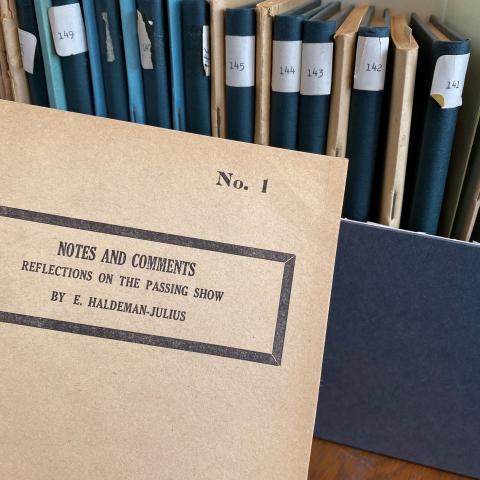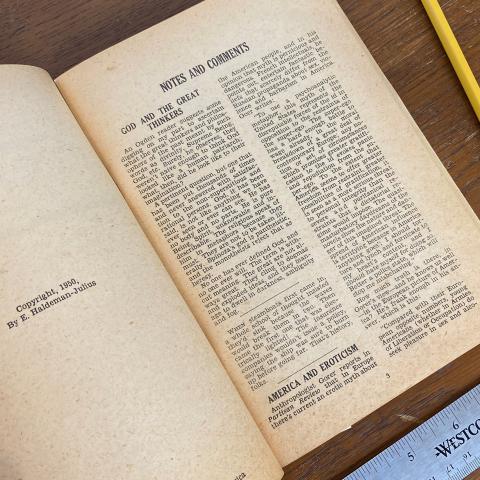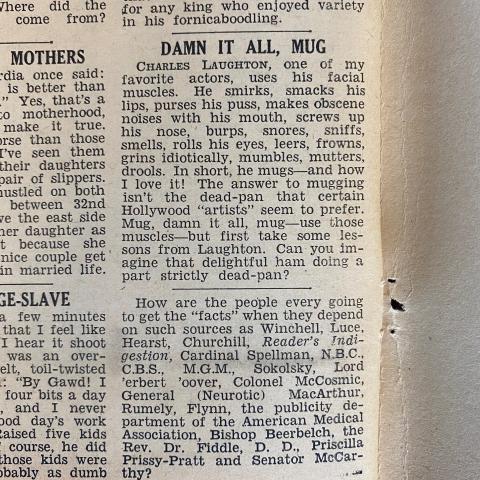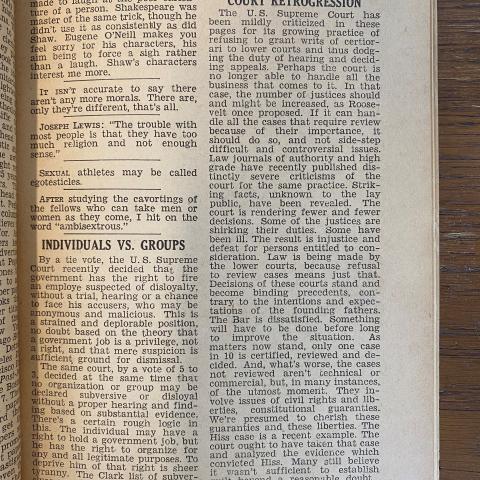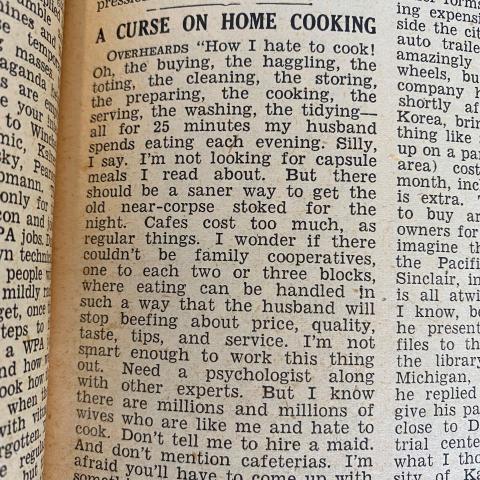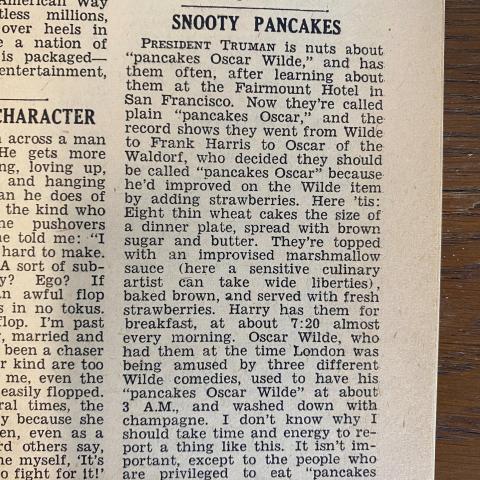Emanuel Haldeman-Julius Big Blue Books
March 15, 2022
Some Peek in the Stacks blog posts are authored by CSUN students who work in Special Collections and Archives. This week's post was written by Misha Kreinbring, an undergraduate student working in the International Guitar Research Archives (IGRA), and IGRA fellow for the 2021-22 academic year.
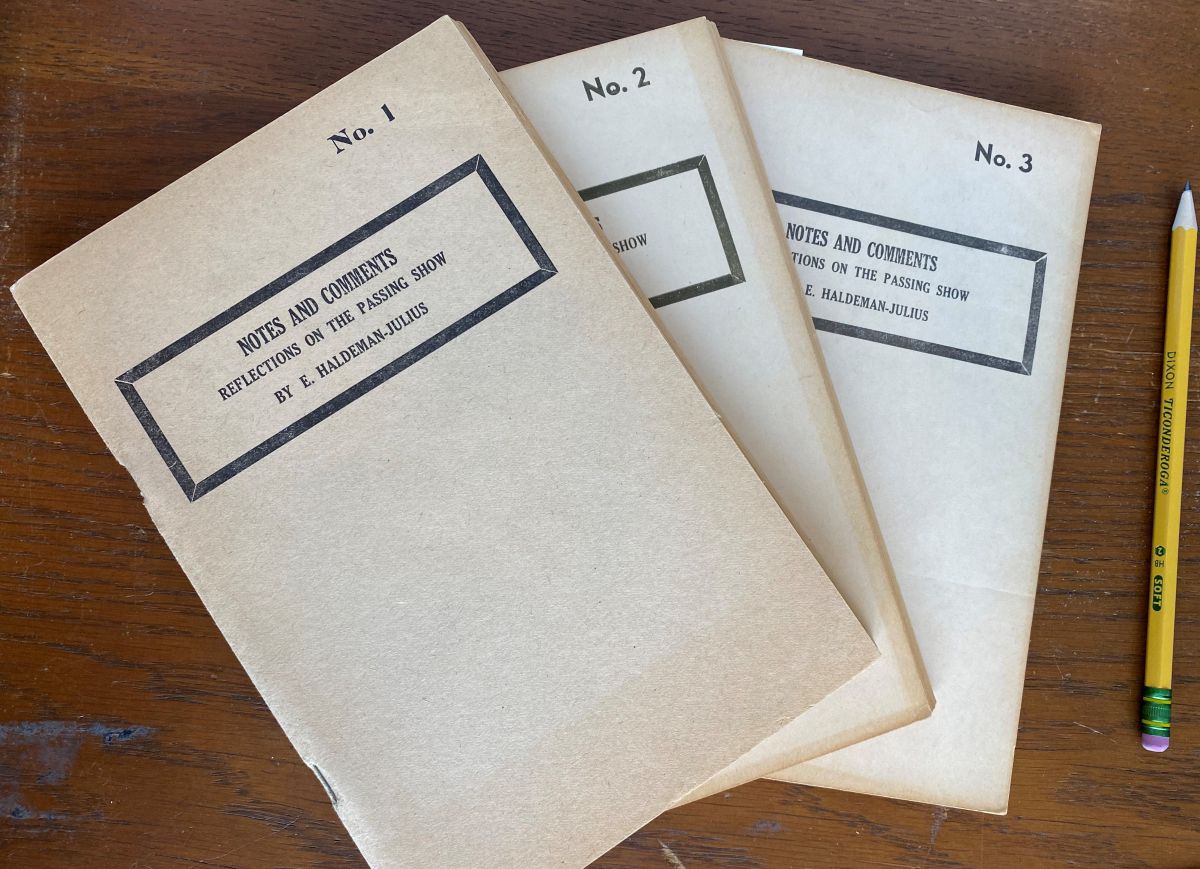 Simple and digestible literature is not often considered historically significant, but literature like this is a fantastic window into what was important to people who came decades before. After all, most people do not interact directly with those in power or those who are authoring academic studies. Instead, people usually interact with more easily accessible texts that were written in bite sized chunks. Literature like this comes in many forms, and for some people today it is educational YouTube vlogs. For some people in the middle of the 20th century it was publications like the Big Blue Books published by Emanuel Haldeman-Julius.
Simple and digestible literature is not often considered historically significant, but literature like this is a fantastic window into what was important to people who came decades before. After all, most people do not interact directly with those in power or those who are authoring academic studies. Instead, people usually interact with more easily accessible texts that were written in bite sized chunks. Literature like this comes in many forms, and for some people today it is educational YouTube vlogs. For some people in the middle of the 20th century it was publications like the Big Blue Books published by Emanuel Haldeman-Julius.
Though the name Big Blue Books implies well, big blue books, the books in this collection are easily transportable and meant to be consumed in the same way that we use our phones to watch videos or read short articles while in transit. It is not hard to imagine someone on their mornin commute opening up their bag and reading one of these compact books. The Big Blue Books and their predecessor, the Little Blue books, were both published by Haldeman-Julius Publications in Girard, Kansas. The contents of the books generally range from philosophical to fictional to biological and even political.
The finding aid for this collection includes many subseries, one of which is titled "Notes and Comments, Reflections on the Passing Show," a title taken from the writings of Emmanuel Haldeman-Julius, the owner of Haldeman-Julius Publications, himself. The structure within each of these books looks like a newspaper with many columns per page and small sections that take four to five minutes to read. An interesting modern parallel to this subseries is the vlogbrothers YouTube channel. On their "Crash Course" YouTube channel the brothers send four-minute videos to each other every week that cover a variety of topics from silly to serious. Likewise, "Notes and Comments, Reflections on the Passing Show," has a collection of 10 books published from 1950 to 1951 and covers a similar variety of topics. There is not a focus on any particular topic other than what sold well at the time such as general socialist ideas, atheism, misconceptions about Russia, and many other random musings. What connects the educational YouTube vlog and “Notes and Comments, Reflections on the Passing Show” is that both are short format educational works for consumption by laypeople.
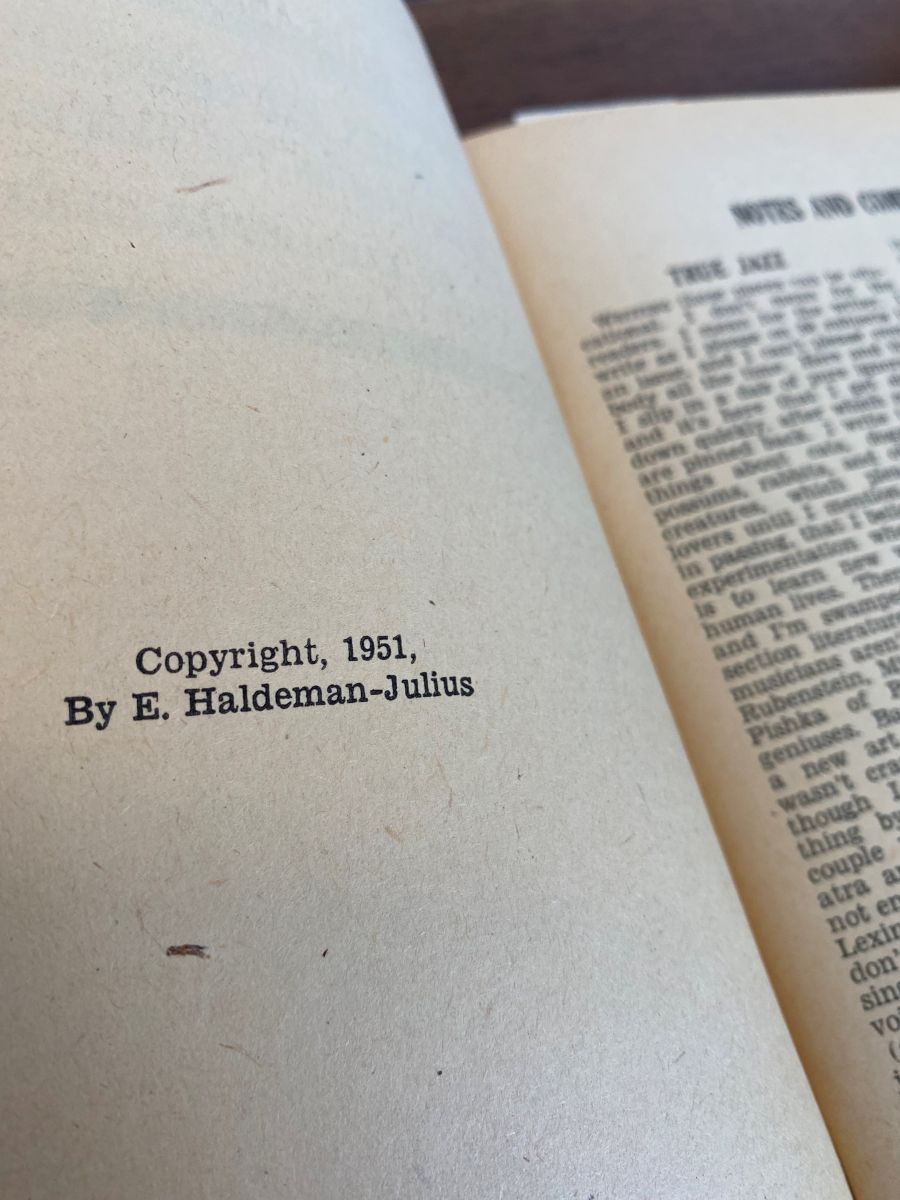 Some articles in "Notes and Comments" are lighthearted like, "Damn It All, Mug" which talks about the facial expressions of the actor Charles Laughton and how much character he creates compared to his more dead-pan Hollywood contemporaries. Some cover more serious topics. Haldeman-Julius’s piece called "Court Retrogression" is one of his many short critiques on the supreme court system in the 1950s. In this article he calls for the addition of more justices in order to cover all of the new civil rights cases that were being left at the local level which he considered problematic. Then, another light-hearted article is titled "Television Dead?." This title is fantastic because one could think of it as a proto YouTube clickbait title. In "Television Dead?" Haldeman-Julius talks about the decline of TV in a way we would be surprised, or maybe not so surprised to hear today: "Television resurrection is possible, and without miracles. Common sense and respect for intelligence and taste would do."
Some articles in "Notes and Comments" are lighthearted like, "Damn It All, Mug" which talks about the facial expressions of the actor Charles Laughton and how much character he creates compared to his more dead-pan Hollywood contemporaries. Some cover more serious topics. Haldeman-Julius’s piece called "Court Retrogression" is one of his many short critiques on the supreme court system in the 1950s. In this article he calls for the addition of more justices in order to cover all of the new civil rights cases that were being left at the local level which he considered problematic. Then, another light-hearted article is titled "Television Dead?." This title is fantastic because one could think of it as a proto YouTube clickbait title. In "Television Dead?" Haldeman-Julius talks about the decline of TV in a way we would be surprised, or maybe not so surprised to hear today: "Television resurrection is possible, and without miracles. Common sense and respect for intelligence and taste would do."
What is interesting is the way we watch educational vlogs in transit, to learn something new, is just like what many people likely did with "Notes and Comments, Reflections on the Passing Show," seventy years ago. There really is value in the media that we look over so fast.
Image Gallery
Post tagged as: special collections, publications, united states
Read more Peek in the Stacks blog entries